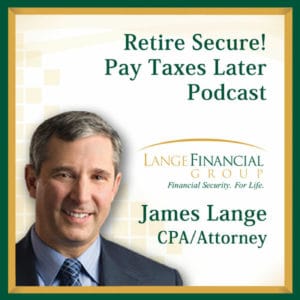Click here to listen to this snippet.
Erika: Great thanks for all of your answers. I’m going to flip to the first question we got in the live room and that was from John. He says; Buffet and Bogel prefer S&P 500. Is there any logical reason why international markets have performed so poorly versus the US? Are the business environments or tax laws over there so bad or is it our greed driving up assets?
Larry Swedroe: Okay let’s see if we can get some insights into this. So first of all, I have the greatest respect for John Bogle. I knew him personally. He was a really great man. However, he made two big mistakes in his life on investing that are not supported by academic evidence or logic.
One is that he kept repeating the mistake that he said: “growth stocks and value stocks have provided the same returns” that’s simply incorrect. He should have said ‘growth-oriented mutual funds, mutual funds that have their name in them, have provided similar returns to value mutual funds. But if you own passively managed index types of strategies then value strategies have outperformed over the long term.
His other mistake was “capital is going to be tied to the US economy likely. And if the US economy does poorly your labor capital will be worth less. Your stocks are worth less at the same time. So you want to diversify your capital.” Over the very long-term returns should be very similar certainly on a risk adjustment basis and we tend to go through cycles and the most recent one was one where the US happened to outperform. But it dramatically underperformed in the prior decade of the 2000s. Especially from 2002 to 05 or 06 where there was a period, I think let me see if I get the numbers right here. From 2002, or 2000 to 05 or so. I don’t remember the exact years but there’s a 6 year period, or 5 year period where the S&P was up 81% in that period. And the ITHI Index or International Index was up double that. And the funds we use for emerging markets typically the DFA emerging market value fund was up over 500%. Now that’s not that long ago. It was something like 01 through 05 or some period like that. And people forget that. The US outperformed in the 90s and underperformed in the 70s and 80s. Today about half the global market capitalization is US stocks. To think ‘Why am I smarter than the rest of the world if the rest of the world thinks in its collective wisdom that the US should be half of the market, why should I have more than half?’
There really is no logic to that. That’s simply a mistake. Now I’ll add this; one of the worse mistakes and common one that investors make is they have a recency bias. They look at the last 3, 5, or 10 years and say ‘well the US has outperformed,’ or ‘growth has outperformed’ or ‘healthcare’ or ‘technology’ whatever is the hot sector ‘so that’s what I want to be in!’
The problem with that example is if you looked at the S&P 500 I think the current P is in the low 20s for developed outside the US it’s about 16 and emerging markets about 12 or so. So those much lower Ps are predictors that it means likely you’re going to get higher returns.
So let me just add this one last point. Those higher valuations projection lower US returns than international does not mean the US is a bad investment and the others are great and you should only own them. It means the market foresees the US to be a less risky place and therefore you get lower expected returns for having a less risky asset. So we think the best thing to do is have a balanced portfolio choosing something like 50% US 50% international. You might want to have some home country bias if that helps you stay the course. So we typically have a 60% US 40% international and then just persistently rebalance. When the US does well you’ll sell some. Take chips off the table. Then you’ll be buying international emerging markets cheap. And when they reverse you’ll benefit from them.
Join Jim Lange LIVE on September 28th and 29th for his FREE two-day virtual events!
Click here to reserve your seat!

